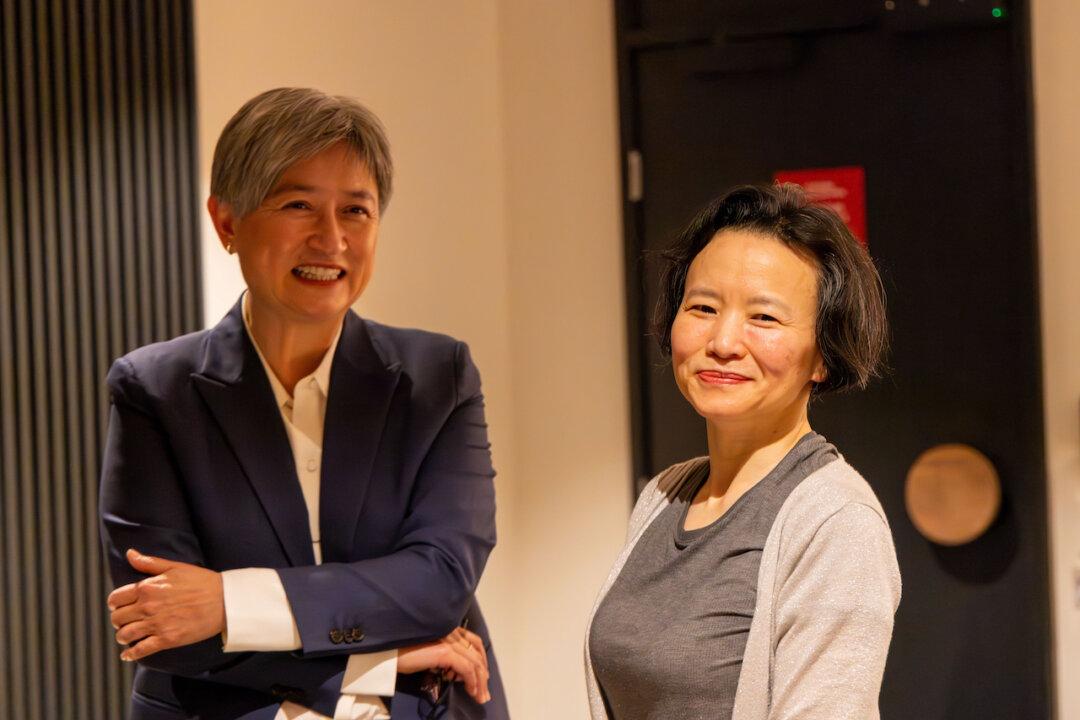Ms. Cheng, 48, was a business reporter for China’s state-run English-language TV station CGTN when she was arrested on Aug. 13, 2020, and subsequently accused of illegally providing China’s state security secrets abroad. Chinese state-run media claimed an overseas institution co-opted her.
Ms. Cheng denied the allegations made against her.
Supplying state secrets overseas is one of the vague laws that the Chinese Communist Party (CCP) uses to arrest and prosecute whomever it sees as threatening to the regime.
However, Ms. Cheng revealed she was arrested and detained after she broke a media embargo by just a few minutes.
An embargo is an agreement between a journalist and a government or company to refrain from publishing information until an agreed time.
“In China, that is a big sin. You have hurt the motherland. And the state authority has been eroded because of you,“ Ms. Cheng told Sky News Australia on Oct. 17, adding that, ”What seems innocuous to us here ... is not in China.”
She said on the day of her arrest, someone “very senior” from her work called her for a “crucial meeting,” where an official showed his badge and said to her, “You’re wanted.”
“Immediately, they took my belongings away, and I was escorted to my apartment,” she said.
Buried In Silence
The Melbourne mother of two was subsequently held in a Chinese jail for two years and 11 months.Ms. Cheng said she was imprisoned for the first six months at a Residential Surveillance facility at a Designated Location (RSDL), where she was detained in a room alone under 24-hour surveillance.
RDSLs are prison networks where people who are secretly “disappeared” by the CCP will be taken to without a court order; inside, victims are often subjected to interrogations and sleep deprivation.
“It’s to make you feel isolated and bored and pained and desperate,” she said.
In the first five months of isolation, she read books and wrote; however, in the final month, she was not allowed to, so she sat in her small, dark room every day.
“They say they gave me 15 minutes of fresh air, but all they meant was a window up the top that a guard would open for 15 minutes. But the curtains are still drawn,” Ms. Cheng said.
“It was just silence. It felt like being buried alive.”
To cope, she translated poems, conversed with her partner, Nick Coyle, and invented a radio station called ‘Coffin FM’ in her mind.
However, after six months, she was transferred to a separate prison with cellmates, one of which she improved her Cantonese with.
“I also tried to learn myself Italian, Spanish, and a little Japanese,” she said.
“I built up a stash of over 200 books. And I used to think, ‘Wow, this is a book that Nick has lovingly chosen for me and has held in his hand.’
“I would caress the book and keep it close to me. And when there were wise words or encouraging words, I would feel that he had written them.”
Ms. Cheng added that food was minimal, and when she returned home, she “gorged” at Melbourne’s Queen Victoria Market and indulged in champagne. “I enjoy everything so intensely and savour it.”
“Every time I look at the sky, I can’t believe… it’s 360 degrees, as opposed to just a little slip up the top of the cell,” she said.
Meanwhile, sometimes she feels “invalid, like a newborn and very fragile—other times I feel like I could fly, and I want to embrace everything,” she said.
Reflecting, she said her treatment in prison changed after the Albanese government was elected in 2022 and after it stabilised the nation’s previously rocky relationship with China.
Australia Repeatedly Advocated for the Return
Ms. Cheng’s release comes after the Australian government repeatedly raised the case in ministerial meetings with CCP officials.Ms. Wong raised the case during her first meeting with Chinese counterpart Wang Yi after the 2022 election, saying, “Australians wanted to see a mother reunited with her children.”
Ms. Wong, who witnessed Ms. Cheng’s family reunion at Tullamarine Airport, described the moment as “rare.”
“It was a privilege to meet her on behalf of all Australians,” she said.
“I wish her and her family well. She asked what she could do for us, and I said, You can thrive and be healthy and happy, and that’s what all Australians want you to be.”
Previously, Mr. Albanese raised her release when he met Chinese leader Xi Jinping in 2022 and Chinese Premier Li Qiang on Sept. 7.
He said it follows the completion of legal processes in China, and the Australian government will continue providing consular support to Ms. Cheng and her family.
“She spent three years in challenging circumstances. I spoke to her about her recent message to the Australian people. She’s a powerful and resilient person. When I spoke with her, she was delighted to be back in Melbourne.”
Ms. Cheng posted the short message online on Oct. 11: “Tight hugs, teary screams, holding my kids in the spring sunshine. Trees shimmy from the breeze. I can see the entirety of the sky now! Thank you, Aussies.”







